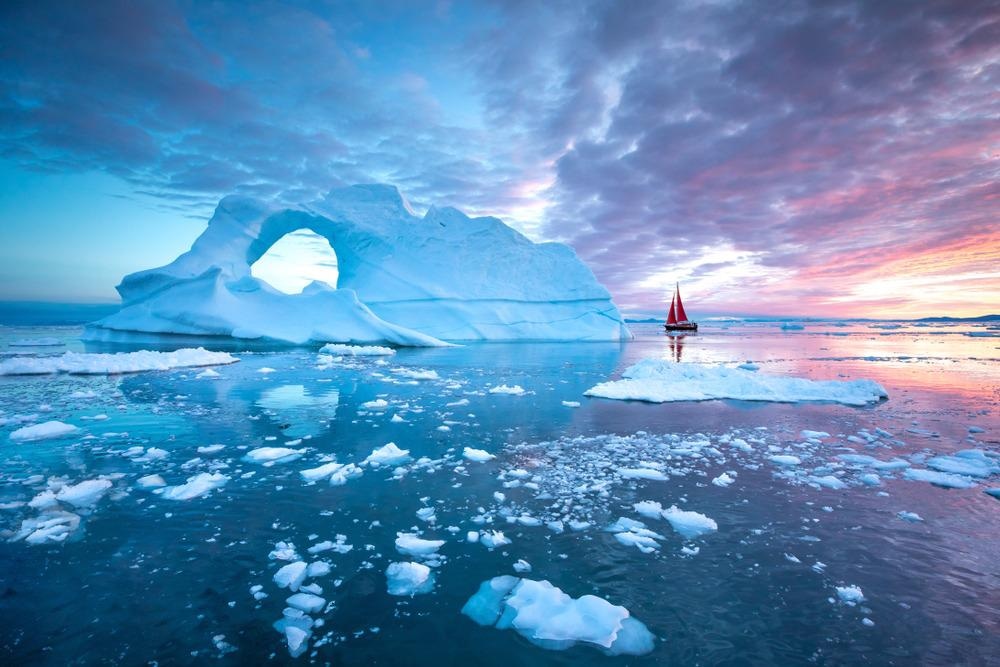A decades-old project between the military and Arctic scientists looks to rejuvenate its work to build a deeper understanding of our oceans, the planet, and climate change.

Image Credit: Kertu/Shutterstock.com
New Agreement Will See Data Quickly Declassified
For 27 years, Arctic scientists have been working alongside the US Navy to gather data to help grow our understanding of our oceans and, subsequently, our planet and how our activities are impacting both in the form of climate change.
When the project, known as the submarine Arctic Science Program (SCICEX), launched back in the 1990s, the US Navy was dedicated entire cruises to the collection of such data. Since this time, the project has continued with a less hands-on approach. While scientists still collect data from the navy, dedicated missions where scientists can deploy their own instruments and determine the ship's route are no longer feasible.
A new memorandum of agreement is currently in preparation, and while limitations that the SCICEX program has faced in recent years will remain under this agreement, the chair of the SCICEX science advisory committee, Jackie Richter-Menge of the University of Alaska Fairbank believes that new opportunities will emerge from it. Specifically, she anticipates that the agreement will result in data from the navy's nuclear submarines being declassified much faster.
The History of the SCICEX Project
At the end of the Cold War, former US Navy captain and member of the US Arctic Research Commission, George Newton, realized that the navy had built up its submarine forces to an extent that was superfluous to the needs of a peacetime environment.
Newton decided that they should be used to collect scientific data to advance our knowledge of the ocean and the environment. Having witnessed the former Soviet Union also using their submarines for this purpose, the SCICEX project was inspired to begin.
After some years of dedicated cruises, by 2000 the navy had decommissioned many of its fleet suitable for Arctic missions. Since then, the project has evolved by coupling the collection of Arctic submarine data with partly classified ice exercises (ICEX) that occur every year or so.
The team now plans to rejuvenate the partnership to leverage the resources the project has at its disposal to better understand what is happening in the Arctic. The results will be fundamental to combating climate change.
The Importance of Investigating the Ocean to Understand Global Warming
The oceans harbor deep, frozen reservoirs of carbon dioxide (CO2). These reservoirs prevent CO2 from entering our atmospheres and contributing to global warming; however, as sea temperatures rise, these frozen reservoirs are beginning to melt, releasing their stores of CO2 as they do so. Investigating these reservoirs is just one of the many sources of data scientists collect from the ocean to help them understand global warming and predict how emissions may change in the coming years.
Scientists are also interested in defining patterns of freshwater runoff and temperature fluctuations and trends. They also investigate the seafloor topography, measuring sea ice's thickness, roughness, and extent, its temperature, conductivity, depth, and nutrient content.
While this data can be collected via several methods, they are often improved or only conductible from submarines. For example, submarines can collect data revealing long-term changes in the thickness and roughness of sea ice via their upward-looking sonar, which is considered the best method of obtaining this data.
Although satellites can also measure this data, they have only been able to do so recently due to advances in technology. The accuracy of the data collected via this method is inferior to that collected from submarines.
The Future of the SCICEX Partnership
Scientists wanted to study the oceans and the Arctic face the huge barrier of having to fund the use of submarines and setting up Arctic camps. Therefore, the SCICEX partnership is fundamental to furthering oceanic exploration as it gives scientists tools that they would not usually have at their disposal.
However, the ICEX missions of previous years have failed to reach their potential in terms of scientific data collection due to them not being the navy's primary mission. As is recounted by a previous junior naval officer aboard the 1998 and 1999 SCICEX cruises, Val Schmidt, navy officers often saw it as a hassle to have to accommodate the scientists.
Now, as the SCICEX partnership stands to be reinvigorated, scientists plan to use the navy submarines to deploy sensors at various depths of the Arctic Ocean to collect data on salinity, temperature, and sound velocity. They also plan to use hydrophones to detect the sounds of the ice sheets breaking.
Further to this, scientists are hopeful that the new agreement will see the data collected via these missions being declassified more quickly. Previously, this has been a sticking point of SCICEX missions because the military had wanted to keep information on the speed and location of its submarines secret in the interest of national security.
It is hoped that the future of the SCICEX mission will be more productive than it has been in previous decades, helping scientists to gather meaningful data of our oceans to help us better understand climate change.
Continue reading: Remote Sensing for Volcanic Activity and Classifications.
References and Further Reading:
Feder, T., (2021) Submarines afford a view from below the Arctic. Physics Today, 74(8), pp.24-27. Available at: https://physicstoday.scitation.org/doi/10.1063/PT.3.4812
National Snow and Ice Data Center (2021) SCICEX Overview. [Online]. National Snow & Ice Data Center. Available at: https://nsidc.org/scicex
T. Woody. (2019) Huge amounts of greenhouse gases lurk in the oceans, and could make warming far worse. [Online]. National Geographic. Available at: https://www.nationalgeographic.com/science/article/greenhouse-gases-lurk-in-oceans-could-make-warming-far-worse
Disclaimer: The views expressed here are those of the author expressed in their private capacity and do not necessarily represent the views of AZoM.com Limited T/A AZoNetwork the owner and operator of this website. This disclaimer forms part of the Terms and conditions of use of this website.